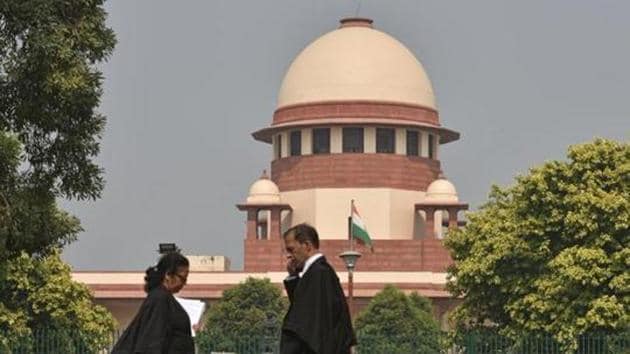‘Aged parents can’t resort to Senior Citizens Act to evict daughter-in-law’: SC
The order is expected to offer necessary insulation to wives battling court cases against hostile in-laws, providing them much-needed respite from getting evicted from husband’s home.
The right of a wife to a shared household under the Domestic Violence Act will prevail against a decree obtained by her aged in-laws under the Senior Citizens Act, ruled the Supreme Court on Tuesday.

The order is expected to offer necessary insulation to wives battling court cases against hostile in-laws, providing them much-needed respite from getting evicted from husband’s home. This decision follows a judgment pronounced by the top court two months ago where the Court noted that even if the shared household is a joint family property where the husband has no legal right or share, the same shall still be treated as a shared household for the wife to continue staying put.
The present case threw a rather interesting clash between two special laws – Protection of Women from Domestic Violence (PWDV) Act, 2005, which seeks to protect wives facing domestic violence, and the Maintenance and Welfare of Parents and Senior Citizens Act 2007, created to protect senior citizens by providing a speedy and inexpensive remedy to secure their interests at an advanced stage of life.
Also read: PM Oli races to get new anti-graft watchdog boss, heads for a showdown with Prachanda
The bench of Justices DY Chandrachud, Indu Malhotra and Indira Banerjee analyzed both laws and found that Section 3 of the 2007 Act had an overriding effect over any other law. It was this argument that the aged parents of the husband used to obtain an eviction order against their daughter-in-law from their Bengaluru home. The Karnataka High Court had on September 17, 2019, upheld the order of eviction against the daughter-in-law who approached the Supreme Court in appeal.
Coming to her rescue, the bench said, “Section 3 of the Senior Citizens Act, 2007 cannot be deployed to over-ride and nullify other protections in law particularly that of a woman’s right to a shared household under Section 17 of the PWDV Act 2005.”
The bench observed that both pieces of legislation are intended to deal with salutary aspects of public welfare and interest. However, the definition of ‘shared household’ was exhaustive, the bench observed, quoting the October 2020 judgment passed by the top court while dealing with similar facts where the wife was sought to be evicted through a trial court decree by the aged in-laws who owned the house in question.
Justice Chandrachud, writing the judgment for the bench, said, “The law protecting the interest of senior citizens is intended to ensure that they are not left destitute, or at the mercy of their children or relatives. Equally, the purpose of the PWDV Act 2005 cannot be ignored by a sleight of statutory interpretation. Both sets of legislations have to be harmoniously construed.”
The bench protected the petitioner wife and ordered that neither the husband nor her in-laws would forcefully try to evict her from her shared household for one year till she avails her remedies under the PWDV Act.
Also read: PM Modi to ‘keep assuring farmers’, blames Opposition for misleading them
The Court said that in similar situations where a wife obtains relief from a tribunal under the Senior Citizens Act, she shall be duty-bound to inform the Magistrate hearing her case under the PWDV Act.
In the present case, as the appeal in divorce proceedings between the husband and wife is pending, the Court directed the restoration of electricity connection for non-payment of dues and asked the husband to continue paying the electricity charges. The residential house of the petitioner is situated at Hobli in Bengaluru North. The suit against the petitioner was instituted by her mother-in-law under the Senior Citizens Act in 2015. Prior to this, in December 2013, a trial court decreed divorce and in March 2014, the petitioner sought maintenance and even appealed before the High Court against the divorce decree which is still pending.
Get Current Updates on India News, Lok Sabha election 2024 live, Election 2024 along with Latest News and Top Headlines from India and around the world.



